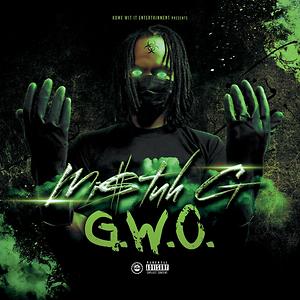
However, she’s careful not to give away too much, especially when it comes to people she knows. As Jordan puts it, she had no desire to “experience any more homophobia than I already have in my life.” There are, of course, added layers of concern when writing about her sexuality as a queer person. “I wasn’t even really all that out yet, so from there to here, it is such a big difference,” she says. Across those releases, she didn’t use feminine pronouns when referring to a love interest in the songs. Her evolution is immediately apparent when listening to her debut EP, Habit, and Lush. Read more: New Etsy report shows trending interest in punk and alternative fashion “On Lush, I thought I was being so embarrassingly vulnerable… I was just scratching the surface of vulnerability,” she says. And each time, she goes a little further.

“Every time I make a new record, I’ve noticed it’s like practicing being more open than I’m comfortable with,” Jordan says. That honesty is exactly what she became known for in the first place, but even in that area, she’s grown, and her work has evolved. Sometimes I’m confessing things, and sometimes I’m like, ‘Well, I literally can’t not force myself to say this honest-ass thing in this song, or the song is gonna be ruined.’” “I got really scared that I wasn’t always confessing everything all the time, and it turned into something for me, and it’s still there. “It is a weird obsession with honesty, and it’s like a compulsion of honesty,” she says, linking it to growing up Catholic and going to confession. “I’d hate to picture someone with you/I lay down and start to cry,” she sings on “ Valentine.” Jordan’s lyrics do feel like they’ve come straight out of a journal because of their confessional quality. Recording it is catharsis, and performing it is catharsis, so it’s all different, but it helps you work through feelings in a really unique way.” Read more: Static Dress release debut project ‘Prologue… (Comic Book Soundtrack)’

“Putting music to it is its own catharsis, too, because you’re providing even more and processing it as you go. “I’m a journaler, and that’s its own catharsis, getting the words down onto paper, making sense of it.” “There’s multiple catharses in making music about your feelings,” she says. She articulates the struggles in moving on from a relationship with lines such as “But I gotta grow up now/No, I can’t keep holding on to you anymore/Mia, I’m still yours,” as her voice ambles over the guitar picking, strings and piano on melancholy “ Mia.” The aching “ Light Blue” is led by a combination of acoustic picking, echoing piano notes and sorrowful violins, which crescendos around Jordan’s evocative falsettos.
#Twisted insane album full#
It shows on the record, which at times feels so full of emotion that it’s practically bursting with sadness or longing. Read more: FINNEAS on embracing transparency to make his debut albumįor Jordan, making music is a way of processing her emotions. So as twisted as that is, I was like, ‘OK, perfect. For me, that is writing from a point of catharsis, and luckily, I was going through a lot. I’m like 12!’ So a big part of everything was just getting back to ground zero. “I was like, ‘Fuck, I don’t want to crash and burn. Yet, delving into what she was experiencing emotionally at the time provided a way out. The pressure of following up such a highly acclaimed album, and fears of the “sophomore slump,” were mounting, exacerbated by the fact that Jordan, now 22, is still so young. “It’s a really high place to fall from,” she admits. “That kind of praise only made her want to work harder to prove herself, to get to a point where she felt like she earned all of those compliments, and it made the process of making a new album even harder. I’m like, ‘I don’t know about that.’ I don’t necessarily feel like a capital-p Prodigy,” she says. “The praise was kind of insane for a while, using the p-word - prodigy - like that shit. The overwhelmingly positive reception to that record crowned her as a leading artist in the indie-rock sphere at just 18 years of age.


Read more: The Regrettes capture longing and heartache in “You’re So F*cking Pretty”įinding inspiration was one thing, but there was also the challenge of following up her critically acclaimed debut album, 2018’s Lush. et al.”), jealousy (“When did you start seeing her?” opens “ Headlock”), fixation (“Doesn’t obsession just become me?” she sings on “Forever (Sailing)”) and desperation (“Fuck being remembered, I think I was made for you” from the title track). Valentine takes the listener through loss (“Wish it’d been you the other night/Should have been you, but it’s all right” on “ c.


 0 kommentar(er)
0 kommentar(er)
